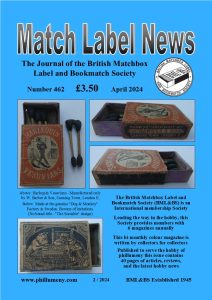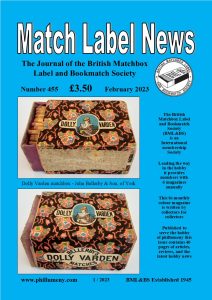August magazine
The August 2025 magazine has now been posted to members. It includes full details of the Society Auctions and all the latest phillumeny news.

The August 2025 magazine has now been posted to members. It includes full details of the Society Auctions and all the latest phillumeny news.

The August magazine has now been posted to members. It includes full details of the Society EGM and all the latest phillumeny news.

The April magazine has now been posted to members. It includes full details of the Society AGM and all the latest phillumeny news.

The February magazine has now been posted to members. It includes full details of the March Live On-line Auction and all the latest phillumeny news.
